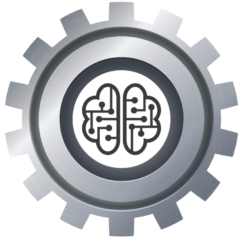Critical thinking refers to the ability to analyze, evaluate, and synthesize information in order to make reasoned judgments and decisions. In addition to the Socratic method, there are several other methods of critical thinking that are commonly used:
- Argument analysis: This method involves breaking down arguments into their component parts, such as premises and conclusions, and evaluating the logic and evidence used to support them.
- Inquiry-based learning: This method involves asking questions and exploring ideas in order to promote deeper understanding and critical thinking. It is often used in science and other hands-on learning environments.
- Decision-making frameworks: These frameworks provide a structured approach to decision-making by outlining key factors to consider, such as pros and cons, risks and benefits, and ethical considerations.
- Creative thinking: This method involves exploring multiple perspectives and generating new ideas in order to solve problems or generate innovative solutions.
- Mind mapping: This method involves visually organizing information and ideas in order to identify connections, patterns, and relationships between them.
- Reframing: This method involves looking at a problem or situation from a different perspective in order to gain new insights and identify potential solutions.
These methods are not mutually exclusive, and many of them can be used in combination with one another to promote critical thinking and problem-solving skills.
Concept
Critical thinking is an essential skill for navigating today’s complex world. It involves evaluating information and arguments objectively, making sound decisions, and avoiding biases and fallacies. In this article, we’ll explore some methods for critical thinking that you can use to improve your reasoning skills and make better decisions.
Before you start evaluating information, it’s essential to make sure you understand the question or problem you’re trying to solve. Ask yourself what you’re trying to accomplish, what information you need, and what assumptions you might be making. Clarifying the question or problem helps you avoid jumping to conclusions or evaluating irrelevant information.
Once you’ve clarified the question or problem, you need to gather and evaluate relevant information. This involves identifying sources of information, assessing their credibility, and analyzing the evidence they provide. Be sure to look for multiple perspectives and avoid relying on a single source of information.
We all have assumptions and biases that can influence our thinking. To think critically, it’s important to identify these assumptions and biases and consider how they might be affecting your reasoning. Be open to different perspectives and challenge your own assumptions.
When evaluating arguments, it’s important to assess the evidence presented and consider any logical fallacies or biases that might be present. Look for inconsistencies, unsupported claims, and alternative explanations. Use evidence and logic to support your conclusions.
Thinking critically also involves considering the implications and consequences of your decisions. Consider the short-term and long-term effects of your choices and how they might impact different stakeholders. Consider alternative solutions and evaluate the trade-offs involved.
Finally, critical thinking involves reflecting on your own thinking and revising your assumptions and conclusions as needed. Be open to feedback and willing to change your perspective if new evidence emerges. This helps you avoid confirmation bias and stay open to new ideas and perspectives.
In Summary
Critical thinking is a vital skill for navigating today’s complex world. By clarifying the question or problem, gathering and evaluating information, identifying assumptions and biases, evaluating arguments, considering implications and consequences, and reflecting and revising, you can improve your reasoning skills and make better decisions. Practice these methods regularly, and you’ll be well on your way to becoming a more effective critical thinker.
#infobymattcole
 You can check out Matt’s LinkedIn account, Youtube Channel, or Podcast.
You can check out Matt’s LinkedIn account, Youtube Channel, or Podcast.Introducing my new books, ‘The Art of Critical Thinking’ and ‘The Critical Thinking Model’. Both can be read for free with Kindle Unlimited or $2.99 each via Kindle.





